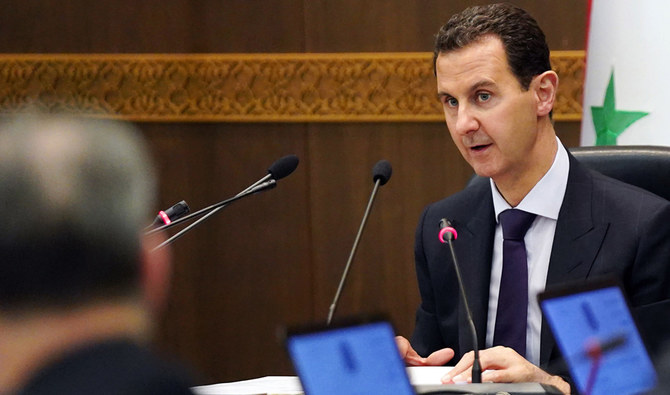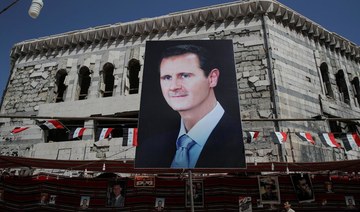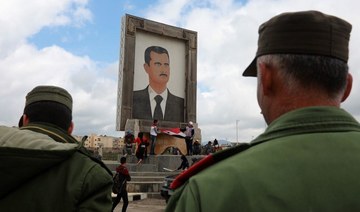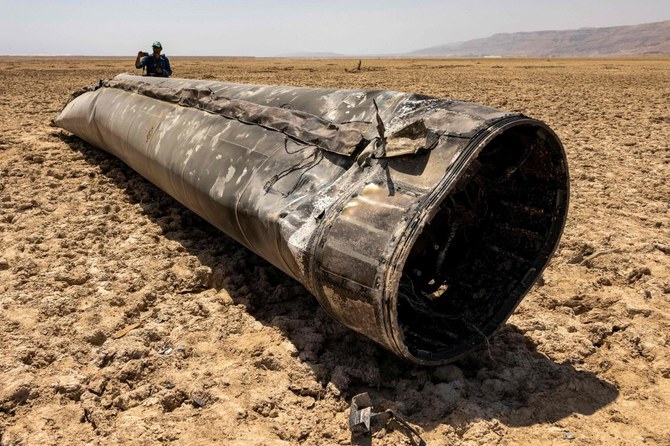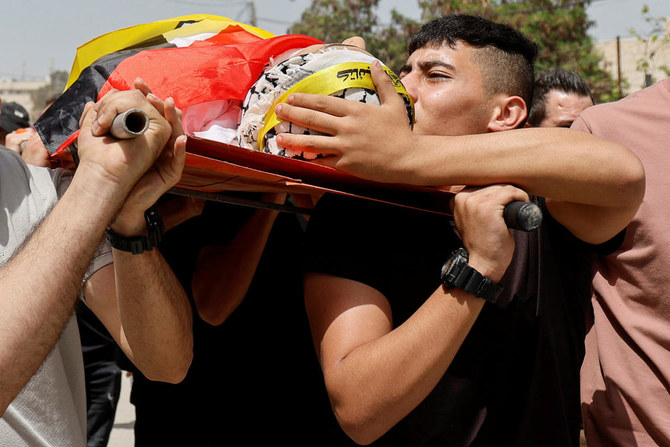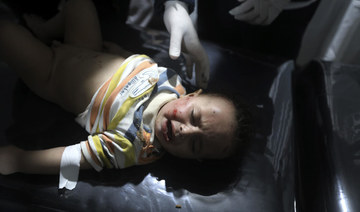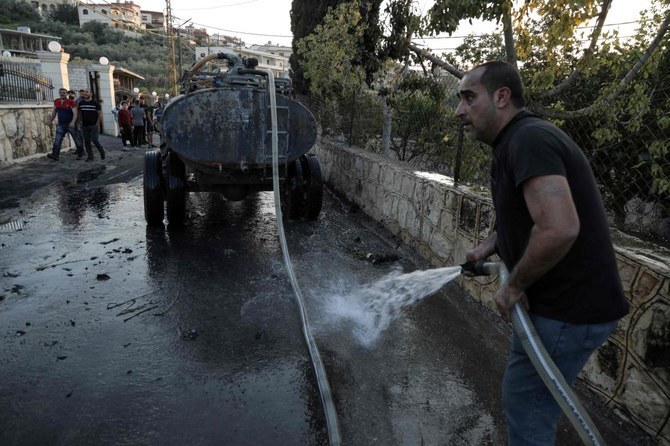BEIRUT: Thousands of documents found in abandoned Syrian regime offices during the country’s civil war reveal the reach of President Bashar Assad’s shadowy security agencies that sought to eliminate dissent at all costs, according
to a rights report published Tuesday.
The documents, obtained by the Washington-based Syria Justice and Accountability Center, show the agencies spied on the populace at large, sought to eliminate dissidents through detention, intimidation or killings and systematically persecuted the Kurdish minority even before the onset the 2011 uprising against Assad.
The report, titled “Walls Have Ears, An Analysis of Classified Syrian Security Sector Documents” and based on a sample of 5,000 documents, presents some of the most damning evidence of state involvement — at the highest level — in the bloody crackdown on protesters, dissidents, and even foreign journalists in Syria.
The documents also offer a rare glimpse into the inner workings of Assad’s security agencies and how pervasively they monitored Syrians’ everyday lives.
Sometimes handwritten, notes contain orders from top commanders to arrest, detain and “do what is necessary” to quell the unrest.
One document details how a man informed on his own brother for supporting anti-Assad protests, prompting a security commander to seek permission to lure the brother into a trap.
Another document, from the country’s top intelligence agency, the National Security Office, identified a French journalist of Lebanese descent as an “instigator of protests” and barred her from entering the country.
Several of the documents identify protesters by name, labeling many as terrorists without any evidence, while others detail the regime's policy of containing and monitoring political activities of the Kurdish minority.
“The documents show clearly that orders were very centralized and came from really high-level officials, including from heads of the security agency themselves, and in lots of documents from the National Security Office,” said Mohammad Al-Abdallah, the director of the Washington-based group.
“This, combined with the nature of the orders — deployment of military units, surveillance, the use of lethal force, persecutions of the Kurds — all are proof a systematic state practice, and can be used as evidence to establish both the Syrian state responsibility and the individual criminal responsibility for committing war crimes and crimes against humanity,” he added.
When protests erupted in March 2011 in Syria, the regime responded with a violent crackdown.
The crackdown, in turn, sparked an armed rebellion against regime forces, dividing Syria into government and opposition-held areas.
Almost nine years later, more than 400,000 people have been killed, half of the pre-war population of 23 million is either displaced internally or refugees in neighboring countries. Most of the towns and cities lie in ruins.
Syria’s regime, which typically does not comment on security issues nor responds to reports accusing it of human rights violations, justifies its crackdown by describing those who rose up against it as terrorists. Assad charges that the uprising was part of a conspiracy supported by the US and regional foes to oust him from power.
The documents were collected from the province of Raqqa and the town of Tabqa in eastern Syria in 2013, and from the western province of Idlib in 2015, following the withdrawal of regime forces.
The Washington-based watchdog and investigators from another independent group, the Commission for International Justice and Accountability extracted over 400,000 documents and collectively scanned and digitized them.
Both groups have already offered assistance to European prosecutors to pursue criminal cases against Syrian officials.



